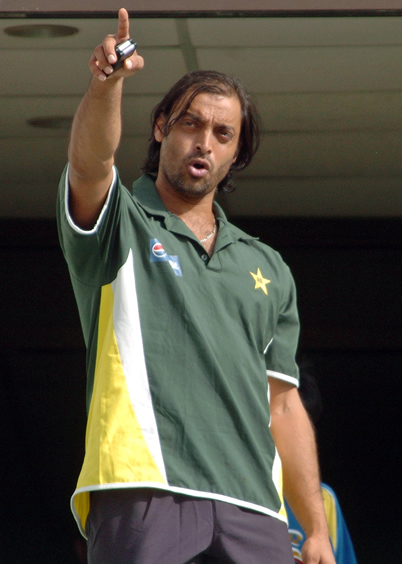Thoughts on Cricket’s Drug Problem
In the two years since he last represented Pakistan, Mohammad Asif has had a lot to think about, including two failed doping tests and one arrest for drug possession. As he gears up for the upcoming Champions Trophy, one hopes Asif has learnt his lesson. But the Asif saga should also have been very educational for the ICC. The jury is still out on how it scored in the exam.
The current drug-testing regimen in cricket is flawed in many ways. In 2006, the ICC became a signatory to the World Anti Doping Agency (WADA) and, as of now, all countries except India have accepted and signed on to that decision. In one respect, this is a positive development as internal testing carried by individual boards will also be subject to these rules. Before the various cricket boards had agreed to come under WADA’s jurisdiction, there was nothing it, or the ICC, could do to challenge sentences given by the cricket boards, concerned.
This was exactly what happened when Mohammad Asif and Shoaib Akhtar tested positive for steroids in drug tests carried out by the Pakistan Cricket Board in November 2006. Under WADA regulations, this should have meant an automatic two-year ban for the pair. Instead, the PCB gave Shoaib a two-year ban and Asif only a one-year ban. Both bans were then overturned on appeal. WADA appealed this decision in the Court of Arbitration for Sport, which ruled that the PCB did not come under its jurisdiction.
Had Shoaib’s and Asif’s positive tests been carried out by the ICC, they would have had to suffer’s WADA prescribed punishments. This could explain why both players weren’t selected for the 2007 World Cup, ostensibly because of injury.
Although this loophole has been closed, another glaring deficiency of the ICC’s drug policy was revealed at the 2008 IPL, when Asif tested positive for nandrolone. He was once again caught in a setting that escaped the ICC’s jurisdiction. The IPL, not being an official ICC event, carried out testing on its own and the one-year ban it imposed on Asif only applied to the IPL itself. To its credit, the PCB did ban Asif indefinitely on its own accord.

Shoaib Akhtar
It is essential that all drug testing, whether carried out by individual boards or various tournament organisers, be accepted by the ICC. Had this been the case, a repeat offender like Asif would now be serving a life ban, surely an appropriate punishment for a multiple drug cheat.
That said, the ICC may have been somewhat hasty in becoming a WADA signatory. There are problems with WADA’s rules, one of which has been loudly voiced by the Indian cricket board, which refuses to accept WADA’s authority because of the clause that all cricketers must let the agency know their whereabouts at all times.
The other main problem with WADA is that it does not distinguish between performance-enhancing and recreational drugs. The punishment for testing positive for steroids and cocaine is the same, even though the latter does nothing to improve the performance of players, or help them recover from injury.
On the face of it, the simplest solution would be for the ICC to develop its own strict drug policy. But cricket’s governing body wants the sport to become a part of the Olympics and rejecting WADA’s authority would scupper those plans. Till then, certain cricketers will have to be careful about what’s inside those cigarettes they’re smoking.
Nadir Hassan is a Pakistan-based journalist and assistant editor at Newsline.



